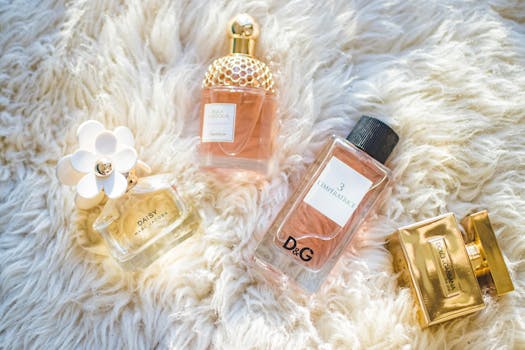Winter Perfumes: How to Choose a Perfume Suitable for the Cold, Intense Season
As the temperature drops and the days grow shorter, many people find themselves reaching for warmer clothing and cozier blankets. However, one often overlooked aspect of winter preparation is the choice of fragrance. Selecting the right perfume for the cold season can enhance your mood, complement your style, and even evoke memories of warmth and comfort. In this article, we will explore how to choose a winter perfume that suits the intense season, focusing on fragrance notes, longevity, and personal preferences.
Understanding Fragrance Notes
Fragrances are composed of various notes that can be categorized into three main groups: top notes, middle notes, and base notes. Understanding these notes is crucial when selecting a winter perfume.
- Top Notes: These are the initial scents you smell when applying a perfume. They are usually light and evaporate quickly. Common top notes for winter include citrus and herbal scents.
- Middle Notes: Also known as heart notes, these emerge after the top notes fade. They form the core of the fragrance and often include floral or spicy elements.
- Base Notes: These are the scents that linger the longest, providing depth and richness. In winter perfumes, base notes often include warm, woody, or gourmand elements like vanilla, amber, and sandalwood.
For winter, it is advisable to choose perfumes with strong base notes that can withstand the cold and provide a comforting aura. Fragrances that feature notes like patchouli, musk, and resin are particularly popular during this season.
Choosing the Right Fragrance Family
Fragrances are typically categorized into several families, each with its unique characteristics. Here are some fragrance families that are particularly suitable for winter:
- Oriental: These fragrances are rich and exotic, often featuring spices, amber, and vanilla. They evoke warmth and are perfect for cold weather. Examples include Yves Saint Laurent’s Opium and Tom Ford’s Black Orchid.
- Woody: Woody fragrances are grounded and earthy, often incorporating notes like cedarwood, sandalwood, and vetiver. They provide a sense of comfort and stability. A great example is Gucci’s Guilty Absolute.
- Gourmand: Gourmand fragrances are edible and sweet, often featuring notes like chocolate, caramel, and coffee. They are cozy and inviting, making them ideal for winter. Consider fragrances like Thierry Mugler’s Angel.
Longevity and Sillage: Key Considerations
In winter, the cold air can affect how a fragrance projects and lasts on the skin. Therefore, it is essential to consider both longevity and sillage (the trail a fragrance leaves behind). Here are some tips:
- Opt for Eau de Parfum: Eau de Parfum (EDP) concentrations typically last longer than Eau de Toilette (EDT) due to their higher oil content. This makes EDPs a better choice for winter.
- Test in Cold Conditions: When trying out perfumes, test them in cold weather to see how they perform. Some fragrances may change character in different temperatures.
- Layering Fragrances: Consider using scented body lotions or oils that complement your chosen perfume. This can enhance longevity and create a more profound scent experience.
Personal Preferences and Occasion
Ultimately, the best winter perfume is one that resonates with your personal style and the occasions you plan to attend. Here are some factors to consider:
- Daily Wear vs. Special Occasions: For everyday use, you might prefer lighter, more versatile scents, while for special occasions, you can opt for richer, more intense fragrances.
- Seasonal Mood: Your mood can influence your fragrance choice. If you’re feeling nostalgic, a scent that reminds you of past winters may be ideal.
- Skin Chemistry: Remember that fragrances can smell different on different people due to skin chemistry. Always test a fragrance on your skin before making a purchase.
Conclusion
Choosing the right winter perfume involves understanding fragrance notes, selecting the appropriate fragrance family, considering longevity and sillage, and reflecting on personal preferences. By focusing on warm, rich scents with strong base notes, you can find a fragrance that not only complements the cold season but also enhances your overall experience. Whether you prefer the exotic allure of oriental fragrances or the comforting sweetness of gourmand scents, the right winter perfume can evoke warmth and joy during the intense season. Embrace the opportunity to express yourself through fragrance and enjoy the cozy embrace of winter.
